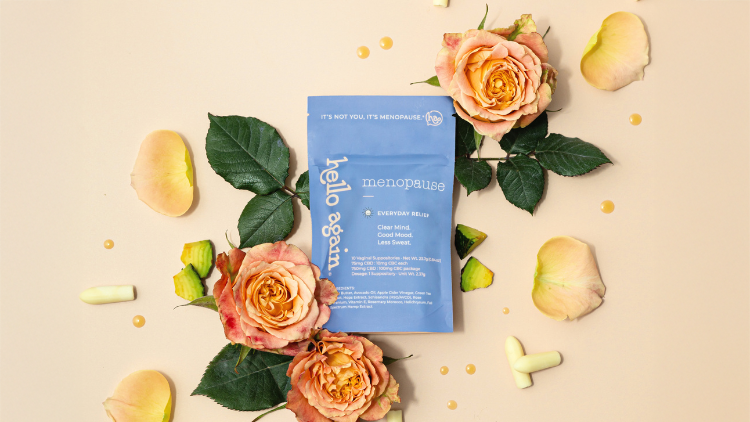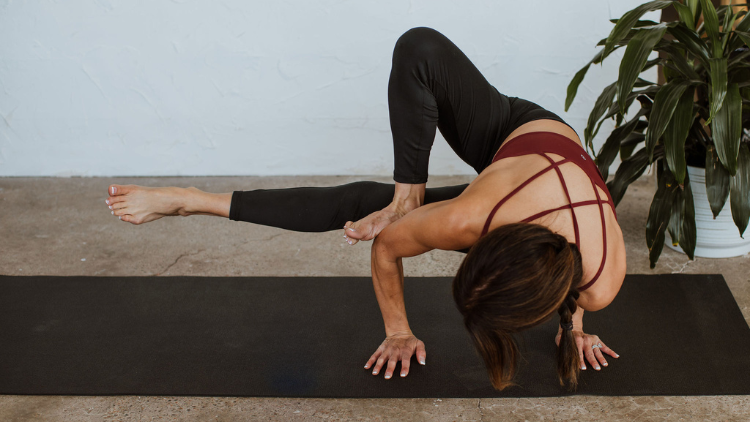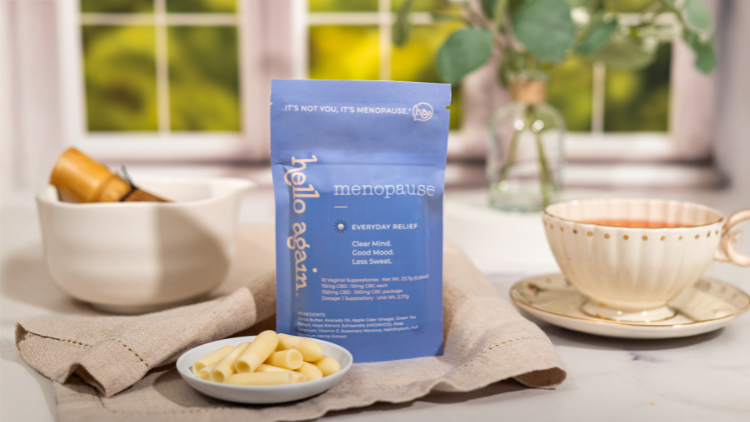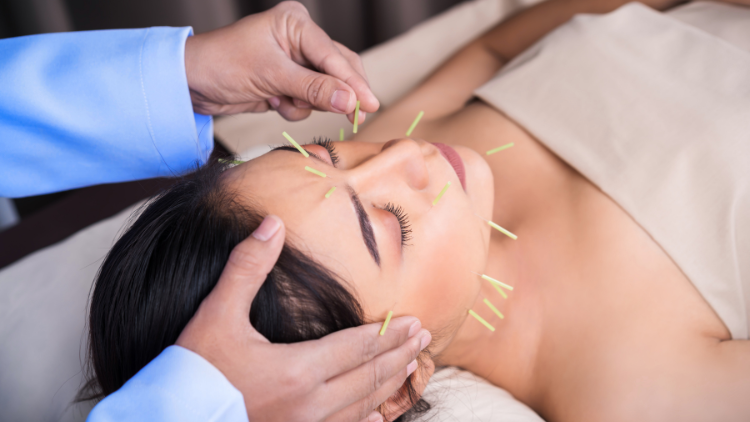5 Non-Hormonal Options for Menopause

Menopause is hitting hard, and every solution offered doesn’t feel right. Hot flashes, brain fog, sleepless nights, mood swings—you’re checking all the boxes, but many of the options out there may not feel like the right fit for your body. You’re not looking to add to the chaos—so what do you try instead?
More women are looking beyond the usual fixes and finding relief with non-hormonal, natural solutions that actually work with their bodies, not against them. Whether you’re navigating menopause symptoms for the first time or you’ve been in the thick of it for a while, personalized, non-hormonal support is out there.
We’re breaking down five non-hormonal options—plant-based remedies, supplements, and lifestyle tweaks—that can help you feel more like yourself without adding extra hormones. Let’s get into it.
What Is Menopause?
Menopause isn’t a sudden switch—it’s a full-on transition, and like most significant changes, it shows up differently for everyone. Officially, it starts when you’ve gone 12 straight months without a period, usually somewhere between the ages of 45 and 55. But let’s be honest: the real action begins long before that.
The years leading up to it—called perimenopause—are when hormones start shifting. Estrogen and progesterone begin to dip and wobble, bringing along symptoms like hot flashes, night sweats, brain fog, mood swings, and sleep struggles. This phase can last for several years—yep, years—before you actually hit menopause.
After that comes postmenopause, when your period is done, but your body is still adjusting. Energy, mood, bone health, and metabolism can still be affected long after your cycle has clocked out.
And here’s the wild part: even though menopause is something nearly every woman will experience, most of us aren’t given the tools to understand it. Each day, about 6,000 women in the U.S. enter menopause—yet many are left feeling unprepared, unheard, or flat-out confused about what’s going on.
So no, menopause isn’t just a “stage of life”—it’s a full-on journey. And the more you know about what’s happening in your body, the better equipped you are to find support that actually fits.
Whether you’re navigating the early signs or well into the thick of it, one thing’s clear: knowledge is power, and so is having the right tools. The good news? You don’t have to overhaul your entire life to start feeling better.

1. Lifestyle First: Diet & Exercise Tweaks That Make a Difference
Let’s start with the basics—how you fuel and move your body can make a huge difference during menopause. There are no gimmicks or drastic overhauls, just simple shifts that can seriously improve your feelings.
First up: nutrition. Food is more than just fuel—it can be a steady source of support during menopause. Incorporating phytoestrogens—naturally found in flaxseeds, soy, lentils, and similar foods—may help your body stay balanced as estrogen levels shift.
Then there are omega-3 fatty acids, which play a key role in supporting brain health and mood. You’ll find them in salmon, chia seeds, and walnuts. Or you can opt for powerhouse bites like the ones from ROOTLESS, which work deep to heal root causes. Simple, nutrient-rich additions that can make a real difference over time.
It doesn’t have to be complicated. A few thoughtful choices on your plate can support your body through hormonal changes—gently, naturally, and at your own pace.
Next, move that body—but keep it gentle. Yoga, walking, and strength training aren’t just good for staying active—they help keep your bones strong, your mood steady, and your stress levels in check. Plus, let’s be real: a little movement magic works wonders when your energy feels like it’s on the fritz.
The bottom line? Small lifestyle shifts equal big wins. It’s not about perfection—it’s about giving your body what it needs to thrive through this transition.
2. Adaptogens: Your New Best Friends
If menopause has you feeling like you’re juggling stress, mood swings, and low energy all at once, adaptogens might just be the backup you didn’t know you needed. These plant-based powerhouses have been used for centuries to help the body stay steady under pressure—without hormones and the harsh side effects.
Let’s introduce the lineup: Ashwagandha is perfect for calming the chaos, maca delivers a natural lift when energy tanks, and Rhodiola sharpens focus when brain fog creeps in. Basically, they help your body adapt (hence the name) to whatever life—and your hormones—decide to throw your way.
You can find adaptogens in capsule or powder form, teas, or even blended into wellness drinks and snacks at your local health food store or online. Check labels, look for quality sourcing, and talk with a healthcare provider before adding anything new to your routine.

3. Cannabis & CBD: Plant-Based Relief Without the High
When it comes to menopause, sleep struggles, mood swings, and that restless, edgy feeling can really throw you off. Enter cannabinoids—specifically CBD and low-dose THC—your plant-based allies for easing the ride. But here’s the catch: not everyone wants the buzz that comes with traditional cannabis products. That’s where products from Hello Again flip the script.
Hello Again’s non-psychoactive vaginal suppositories are designed for women who want effective, hormone-free support without turning their routine upside down. Each formula blends cannabinoids with soothing botanicals known to offer gentle relief for things like mood shifts, restless nights, and that overall out-of-sync feeling.
The vaginal delivery isn’t just clever—it’s intentional. It taps into the endocannabinoid system for targeted absorption, helping your body find balance from the inside out. No head high, no hormones, no hassle—just thoughtful, plant-based support that works with your body, not against it.
4. Supplements That Support, Without Hormones
Sometimes, your body just needs a little extra backup—and no, we’re not talking about adding more hormones to the mix. Enter: supplements. These essentials can help smooth out menopause’s rough edges without messing with your natural balance.
Let’s start with magnesium, a key mineral that supports a range of functions—especially during menopause. It’s known for helping ease tension, promote more restful sleep, and support emotional well-being.
Then there’s the trusted duo: Vitamin D and calcium. As estrogen levels drop, bone density can take a hit. These nutrients work together to support bone health and may contribute to immune function and overall mood stability.
B vitamins are another important group to consider. They play a role in energy production and nervous system support—two things that can feel slightly off during this transition. Keeping your levels steady may help you feel more grounded as your body adjusts.
Bottom line? Supplements aren’t magic pills but solid tools in your menopause toolkit. Just be sure to check in with your healthcare provider before adding anything new—because your wellness game plan should always be as bright and personalized as you are.

5. Acupuncture & Alternative Therapies
Sometimes, you need to think outside the medicine cabinet. When hot flashes, restless nights, or mood swings hit, you don’t always want another pill or prescription. That’s where alternative therapies step in, giving you natural, non-invasive ways to support your body without side effects or extra drama.
Acupuncture is one of the OGs in this space. It’s been around for thousands of years, and for good reason. A few well-placed needles (don’t worry—they’re tiny!) can help balance energy, reduce stress, and even ease some of those tricky menopause symptoms.
Then there’s the power of mindfulness, meditation, deep breathing, or simply learning to pause when things feel overwhelming. It’s not about pretending menopause is easy; it’s about giving yourself tools to handle it with a little more grace (and a lot less stress).
Ultimately, these therapies aren’t about quick fixes. They’re about building a toolkit that supports you—mind, body, and mood—through every phase of the journey.
Find What Works for You
Here’s the thing—menopause doesn’t come with a manual, and there’s definitely no one-size-fits-all solution. What works wonders for one woman might not do a thing for the next. That’s why it’s all about exploring, experimenting, and figuring out what feels right for you. Whether it’s tweaking your diet, adding a few supplements, booking that acupuncture session, or leaning into plant-based support—you’ve got options.
Hormones aren’t the only answer; they’re certainly not the only conversation worth having. A world of non-traditional, effective solutions is waiting to support you through this transition—no extra drama is required. And above all, give yourself credit for showing up and tuning in. Finding what works is part of the process, and so is practicing self-love because this chapter is yours to shape.
That’s exactly why it’s worth being open to nontraditional tools—like Hello Again Menopause. Bold decisions can lead to better balance, more profound rest, and a renewed sense of control. Menopause might throw curveballs, but you’ve got the power to meet them with confidence, clarity, and care.
Key Takeaways
- Hormones Aren’t Your Only Option. From adaptogens to acupuncture, there are effective non-hormonal ways to manage menopause symptoms—no prescription required.
- Support Should Work With Your Body. Natural tools like supplements, lifestyle shifts, and products like Hello Again offer gentle, targeted relief without added hormones or side effects.
- Your Menopause, Your Terms. There’s no right way to do this—explore what feels good, stay curious, and don’t underestimate the power of showing up for yourself.